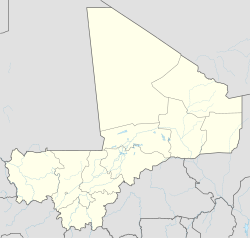Airstrike
On 3 January 2021, Islamic extremists confronted a wedding in the village of Bounti in Mopti Region, central Mali, ordering the attendees to separate by gender. An airstrike, carried out by a French Mirage 2000 aircraft and MQ-9 Reaper drone, then killed 22 people, including children, according to witnesses and local officials including the mayor. [3] [4] [5] [6]
According to the French and Malian authorities, the bombing had targeted a group of about forty jihadists. However, the local Fula organisation Tabital Pulaaku ( fr ) provided another version: 19 men had been killed, all of whom were civilians attending a wedding. The majority of them were elderly. [7] The injured were taken into charge by Medicins Sans Frontieres, who confirmed that most of them were elderly civilians. [8] [9]
Residents also said a helicopter opened fire on the ceremony. [10] The French Armed Forces said they had killed "dozens" of militant Islamists in Hombori, a few kilometers away, on that day, but that a connection between the strike and a wedding party "does not correspond to information collected prior to the airstrike". [3] [4] [5]
On 30 March 2021, the MINUSMA United Nations peacekeeping mission in Mali concluded that the strike killed 19 unarmed civilians and three armed men. [11] They said the strike was on a wedding attended by about 100 civilians and five armed men, presumably members of a group affiliated with al-Qaeda. [11] [12]
The French authorities maintained their version of events; the head of the French armed forces called the UN report "biased". [12] [13] [14] [15]
This page is based on this
Wikipedia article Text is available under the
CC BY-SA 4.0 license; additional terms may apply.
Images, videos and audio are available under their respective licenses.
